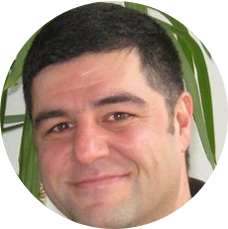
Cells Webinar | Nervous System Development and Plasticity in Model Organisms
Part of the Cells Webinar Series series
8 March 2021, 00:00
Disease, Cells, nervous system
Webinar Information
3rd Webinar on Cells
Nervous System Development and Plasticity in Model Organisms
The Nervous system is essential for receiving, transferring, and processing information, which allows us to make important decisions and carry out everyday tasks. It is composed of two main cell populations, which are the neurons and the glial cells.
As the central part of the nervous system, neurons process incoming information and transmit it to different parts of the body. Glial cells provide support and protection for neurons and are necessary for neural development, synapse and myelin formation and proper function of neurons. They also maintain the homeostasis of the nervous system as some population of glial cells can behave as neural stem cells during embryonic development and in adult stages.
During the development of an organism, the nervous system undergoes significant changes not only regarding its structure but also its function. Neurons, glial cells and the numerous molecular signals and components that are part of the nervous system, can play various roles during different stages of development and in different parts of the nervous system.
This webinar features several eminent experts in the field of nervous system development, maintenance and regeneration in different model organisms.
Dr. Sepand Rastegar
Institute of Biological and Chemical Systems (IBCS),
Karlsruhe Institute of Technology (KIT),
Karlsruhe, Germany
Date: 8 March 2021
Time: 5:00 pm CET
Webinar ID: 837 4089 5874
Webinar Secretariat: cells.webinar@mdpi.com
Chair: Dr. Sepand Rastegar
The following experts will present and talk:
|
Dr. Sepand Rastegar, Karlsruhe Institute of Technology (KIT), Germany |
I studied Biology at the University of Strasbourg, France, where I obtained my diploma degree in 1996. I did my PhD in the laboratory of Prof. Walter Knöchel at the University of Ulm, Germany. In 2000, I moved back to Strasbourg to do a 2 years Post-doctoral research with Prof. Uwe Strähle at the IGBMC. In 2002 I obtained a permanent position at the French National Institute of Health and Medical Research (INSERM). In 2005 I decided to move to Germany to work at the Karlsruhe Institute of Technology (KIT). Currently, I am investigating the molecular mechanisms that regulate zebrafish neurogenesis and regeneration. My models are the embryonic spinal cord and the adult telencephalon. |
|
Dr. Ciaran Murphy-Royal, Université de Montréal, Canada |
Ciaran Murphy-Royal carried out his undergraduate education in Human Physiology at Trinity College Dublin, Ireland where he carried out his final year research project in the lab of Dr. Marina Lynch. Following this Ciaran received a Marie-Curie scholarship to carry out his PhD studies at the Université de Bordeaux, France. There Ciaran studied the astrocytic glutamate transporter GLT-1 under co-supervision with Stéphane Oliet and Laurent Groc. Following his PhD, Ciaran moved to the University of Calgary to carry out his postdoctoral research with Jaideep Bains and Grant Gordon, where he began investigating the effects of stress on astrocytes. In June 2020, Ciaran began his faculty position at the Université de Montréal as an Assistant Professor in the Dept. of Neuroscience with lab space at the CRCHUM. |
|
Dr. Laure Bally-Cuif, Institut Pasteur, France |
Laure Bally-Cuif studied at the Ecole Normale Supérieure in Paris. Interested in the development of the nervous system, she conducted her PhD at Hospital Salpêtrière (C. Sotelo’s laboratory) and Ecole Normale Supérieure (A. Prochiantz’s laboratory) under the supervision of Dr. Marion Wassef. Her PhD work addressed the mechanisms involved in the formation of organizing centers within the neural tube of avian and mammalian embryos. She was an EMBO post-doctoral fellow with Dr. Robert Ho at Princeton University, USA, where she was trained to the model system zebrafish to combine genetics and embryology. She has been using this system ever since. She was recruited at the CNRS in 1996. Following a second post-doctorate at the Helmholtz Research Center in Munich, she built her own research group in this institution in 2000, focusing on the molecular and cellular mechanisms involved in specifying and maintaining neural progenitors (« neural stem cells ») in the zebrafish embryonic and adult brain. She was awarded the Heinz-Maier Leibnitz Prize of the Deutsche Forschungsgemeinschaft for this work in 2006. In 2009, she joined the Paris-Saclay Institute for Neuroscience in Gif-sur-Yvette (France) on a CNRS Research Director position, where she established her research group with special funds from the ANR and Ecole des Neurosciences de Paris (Chairs of Excellence) and the Grand Prize of the Schlumberger Foundation for Education and Research. She was awarded an Advanced Grant of the ERC in 2013. She was appointed to her current Unit head position at Institut Pasteur in January 2016. |
Program
|
Speaker/Presentation |
Time in CET |
|
Dr. Sepand Rastegar Chair Introduction |
5:00 – 5:05 pm |
|
Dr. Ciaran Murphy-Royal Astrocyte Network Dysfunction Regulates the Synaptic Response to Stress |
5:05 – 5:50 pm |
|
Dr. Laure Bally-Cuif Single-Cell and Population Mechanisms Driving the Maintenance of Adult Neural Stem Cell Ensembles |
5:50 – 6:35 pm |
|
Q&A Session |
6:35 – 6:55 pm |
|
Closing of Webinar |
6:55 – 7:00 pm |
Webinar Content
The third webinar of the MDPI journal Cells, entitled “Nervous System Development and Plasticity in Model Organisms”, was held on Monday 8 March 2021. This online seminar was chaired by Dr. Sepand Rastegar (Karlsruhe Institute of Technology, Germany) and collected the scientific contribution of Dr. Ciaran Murphy-Royal (Université de Montréal, Canada) and Dr. Laure Bally-Cuif (Institut Pasteur, France) to the field of nervous system development, maintenance, and regeneration.
The first speaker was Dr. Ciaran Murphy-Royal and his presentation showed how astrocyte network dysfunction regulates the synaptic response to stress. Dr. Laure Bally-Cuif then presented her research on single-cell and population mechanisms driving the maintenance of adult neural stem cells. Both presentations were followed by a Q&A session, moderated by the chair, to answer the questions submitted by live online audience.
The webinar was offered via Zoom, and registration was required for attendance. The full recording can be found below.
To stay updated on upcoming Cells webinars organized by MDPI, be sure to sign up for our newsletter by clicking on “Subscribe” at the top of the page.
Relevant Special Issues
Neurogenesis and Regeneration in the Zebrafish Central Nervous System
Guest Editor: Dr. Sepand Rastegar
Assistant Guest Editor: Ms. Luisa Lübke
Deadline for manuscript submissions: 28 February 2022
The Pathogenesis of Neurological Disorders
Guest Editor: Dr. Mohammad Moshahid Khan
Deadline for manuscript submissions: 31 March 2021
Neuroplasticity of Central Nervous System in Health and Disease
Guest Editor: Dr. Giovanni Cirillo
Deadline for manuscript submissions: 31 August 2021
10th Anniversary of Cells—Advances in Cells of the Nervous System
Guest Editor: Prof. Claire H. Mitchell
Deadline for manuscript submissions: 31 October 2021










